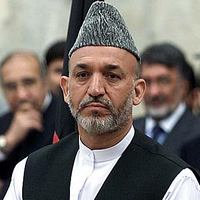Afghan President Hamid Karzai's two-day stay in Moscow on Jan. 20-21 marked his first official bilateral visit and the first state visit by an Afghan president to the Russian Federation since its founding after the Soviet Union's disintegration in December 1991. The trip -- during which Karzai met with President Dmitry Medvedev, Prime Minister Vladimir Putin, and other Russian political and economic leaders -- provided an important opportunity to both confirm recent growth in formal ties between the two countries as well as impart additional momentum for further expanding the relationship. Karzai was accompanied by most of the Afghan cabinet, reflecting the comprehensive nature and importance of the trip, and allowing for a wide-ranging dialogue on economic, diplomatic, and military issues.
Several important agreements resulted from the meetings, the most immediate being in the realms of economics and energy. Russian officials committed to supporting several large development projects, including some that were left unfinished from the time of the Soviet Union. For example, Russian specialists have agreed to help upgrade the hydropower plant in Naghlu and to construct smaller hydroelectricity stations in other regions of Afghanistan. The Russian government also offered to help rebuild the strategically important Salang Tunnel connecting northern and southern Afghanistan through the Hindu Kush mountains. Other bilateral projects include constructing an irrigation canal in Nangarhar province, a nitrogen fertilizer plant in Mazar-e Sharif, a customs terminal in Kabul and other infrastructure.
In a joint statement, the Russian government also agreed to support construction of the Trans-Afghanistan pipeline -- also known as the TAPI pipeline, for Turkmenistan, Afghanistan, Pakistan and India -- which aims to pump natural gas from Central Asia to India through Afghanistan. Russia's Gazprom might participate in a consortium to build the pipeline and could contribute gas supplies to the project, joining energy companies from Azerbaijan, Kazakhstan and Uzbekistan. Plans for this long-discussed but never implemented 1,000-mile pipeline envisage an annual capacity of 30 billion cubic meters. The Asian Bank for Development supports the pipeline's construction despite its estimated $4 billion cost.

